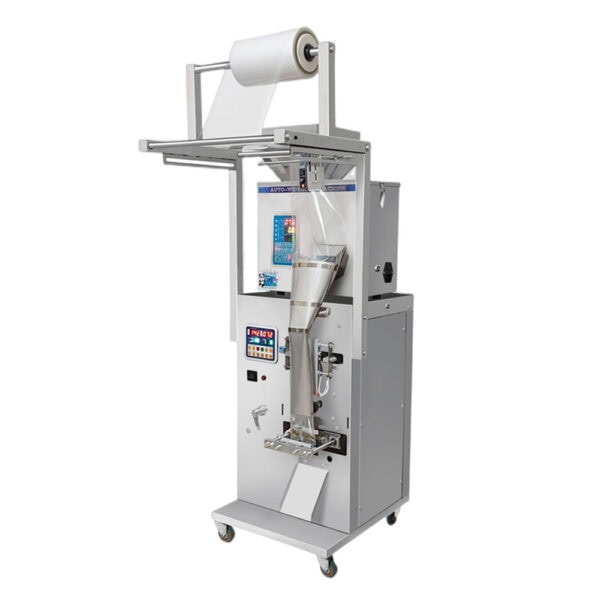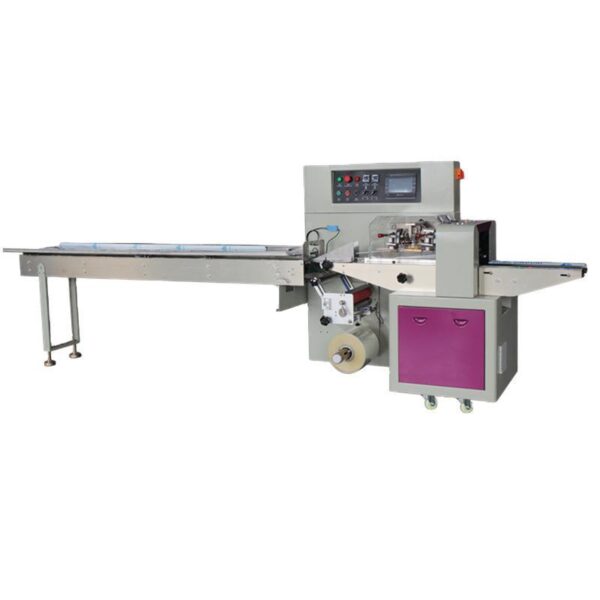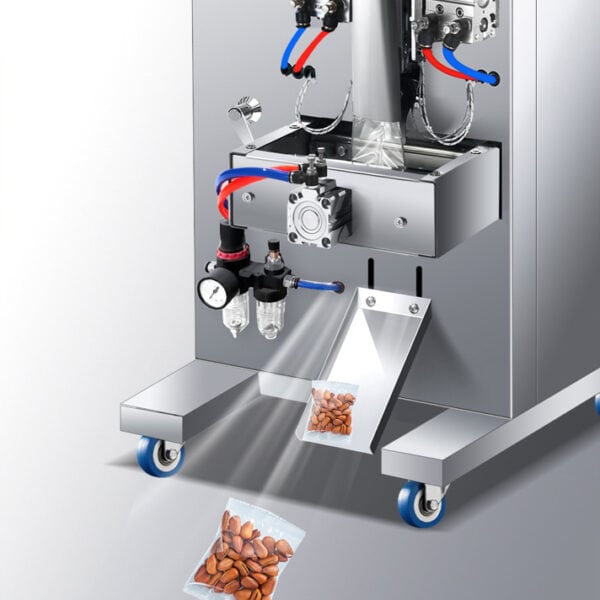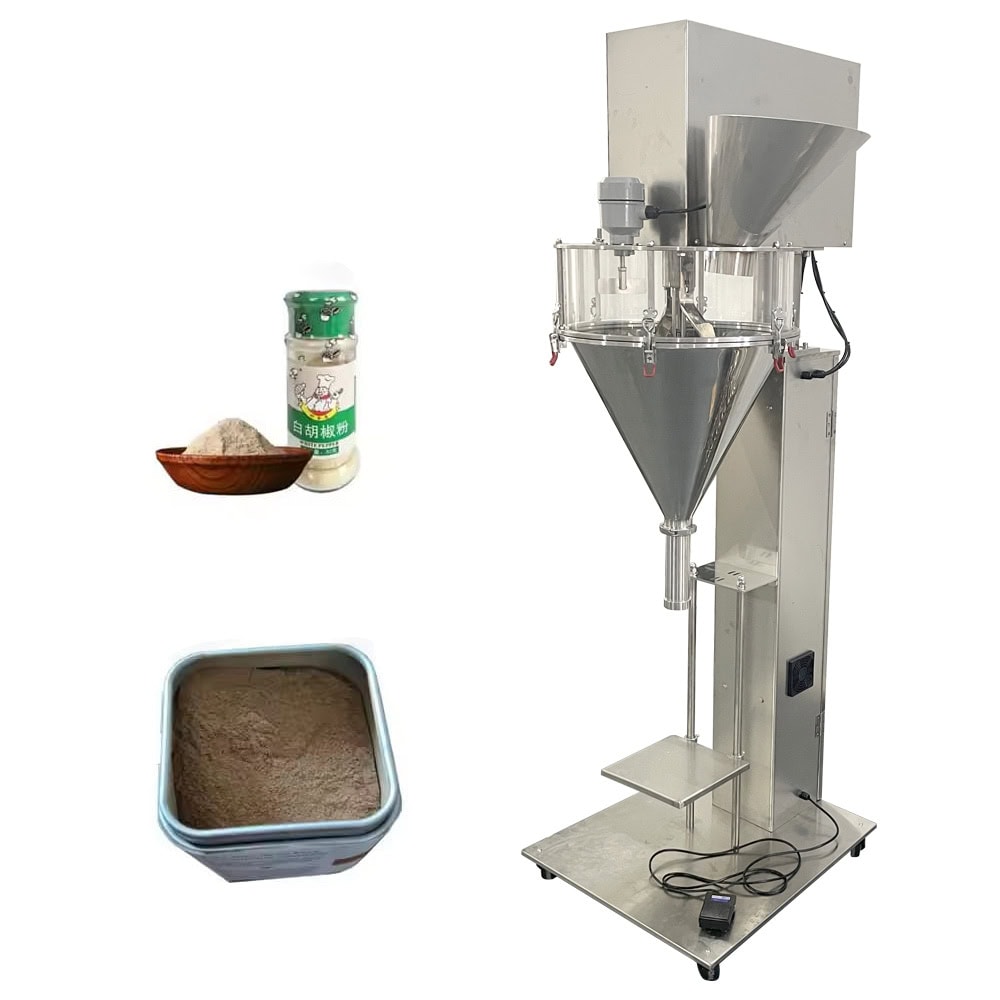The inefficiency of manually packaging granules increases labor costs and leads to production delays, which negatively impacts business profitability. A granule packing machine automates this process, saving time and increasing productivity.
A granule packing machine automates the filling and sealing of granules into pouches or containers. It ensures accurate, efficient, and consistent packaging in industries such as food, pharmaceuticals, and chemicals.
Now, let’s explore how these machines function, the types available, and the industries that rely on them.

What is a Granule Packing Machine?
A granule packing machine is designed specifically for packaging granular materials like seeds, rice, grains, and even chemicals. By automating the filling and sealing processes, it increases production speed while maintaining high accuracy. These machines reduce the labor intensity required and ensure consistent results, making them indispensable for industries dealing with granular products. The machine is used extensively in the food industry, agricultural sector, and pharmaceuticals for tasks like filling and packaging sugar, fertilizers, and medicines.
Types of Granule Packing Machines
Granule packing machines come in various types to suit different packaging needs:
- Vertical Form-Fill-Seal (VFFS) Machines: These machines are highly efficient and form pouches from flat sheets of film before filling them with the granules and sealing the packaging.
- Horizontal Form-Fill-Seal (HFFS) Machines: Ideal for larger or heavier items, this machine fills horizontally formed packages.
- Automatic Weighing Machines: Equipped with multi-head weighers, they ensure precise quantities of granules in every package.
These machines are crucial for high-volume packaging, making them the backbone of modern packaging systems. Some packaging machines are also designed to work in conjunction with other equipment, such as a bottle unscrambler or a barcode printer, to create an efficient production line.

How Does a Granule Packing Machine Work?
Granule packing machines use a combination of technology and mechanics to fill and seal products efficiently. The process begins by transporting the granules via a conveyor system into a filling mechanism. Once the product reaches the filling station, it is weighed or measured according to the preset specifications. The machine then fills the pouches or containers with the correct quantity of granules, and the sealing mechanism closes the package. Modern granule packing machines often use electronic sensors to detect errors and maintain accuracy throughout the packaging process.
The integration of industrial label printers or barcode printers allows businesses to print essential details on the packaging, such as batch numbers, expiry dates, or branding. This ensures compliance with industry standards and enhances product traceability.
Benefits of Using Granule Packing Machines
There are several advantages to using granule packing machines in production lines:
- Increased Speed and Efficiency: These machines automate repetitive tasks, speeding up production.
- Consistency: Machines ensure each package contains the exact quantity of granules, reducing errors and waste.
- Cost-Effective: Automated systems help reduce labor costs while increasing output, leading to higher profits.
- Flexibility: Modern machines can easily adapt to different product sizes and packaging formats, offering flexibility to businesses.
These benefits make granule packing machines ideal for businesses looking to scale their operations while maintaining precision and quality.

Applications of Granule Packing Machines
Granule packing machines are essential across multiple industries:
- Food Industry: They are used to package sugar, salt, rice, coffee beans, and other granular food products.
- Pharmaceutical Industry: Granule packing machines handle powdered medicines, ensuring that each package contains the correct dosage.
- Agriculture: Fertilizers, seeds, and other agricultural products are efficiently packaged using these machines.
Due to the precision and efficiency offered, granule packing machines are vital for businesses that handle bulk materials and need to maintain high standards of packaging quality.

What is the Difference Between Granule and Powder Packing Machines?
Granule packing machines are specifically designed for larger particles, while powder packing machines handle fine powders. Granules are solid and consistent, so these machines use methods like volumetric filling or weighing systems. In contrast, powder packing machines utilize auger fillers to pack products with smaller particles, such as flour or powdered chemicals. The difference in product consistency calls for different packing technologies.
How to Choose the Right Granule Packing Machine
Choosing the right machine depends on factors such as the type of granule being packaged, production volume, and the specific needs of the business. Some machines come equipped with advanced features like touchscreens, multiple language support, and integration with other packaging equipment like a bottle filling machine or a capping machine. These added functionalities ensure that businesses can meet varying production demands.
Maintenance of Granule Packing Machines
Proper maintenance is critical to ensuring the longevity and efficiency of granule packing machines. Maintenance tasks include regularly cleaning the filling and sealing mechanisms, checking for wear and tear in moving parts, and recalibrating the weighing systems. Performing scheduled maintenance helps minimize downtime and ensures the machine operates at optimal efficiency.
Technological Advancements in Granule Packing Machines
The newest granule packing machines are equipped with advanced features such as IoT connectivity, predictive maintenance alerts, and user-friendly interfaces. These innovations not only improve machine performance but also allow operators to monitor real-time data and adjust settings remotely. This results in less downtime, improved production efficiency, and more precise packaging.
The Future of Granule Packaging
As the demand for automated packaging grows, granule packing machines are expected to evolve with greater speed, accuracy, and sustainability in mind. Future machines will likely focus on minimizing packaging waste, improving energy efficiency, and integrating seamlessly with other systems, such as liquid filling machines or shrink wrap machines, to create more efficient and eco-friendly production lines.
Conclusion
Granule packing machines offer businesses a reliable way to increase productivity, ensure precision, and scale packaging operations efficiently. By investing in automated solutions, businesses can achieve better outcomes and stay competitive in today’s market.










